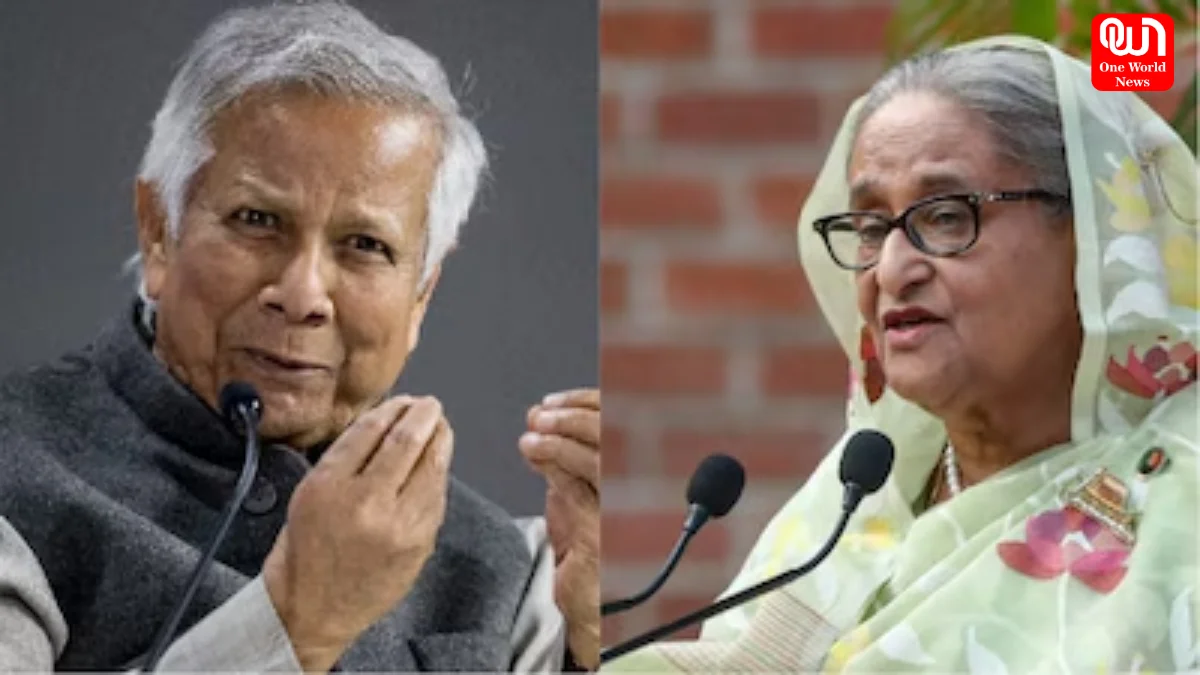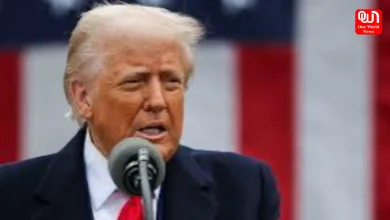Sheikh Hasina Accuses Muhammad Yunus of Being a Frontman for Extremists, Not a Symbol of Democracy
Sheikh Hasina criticizes Muhammad Yunus, claiming the Nobel laureate is a frontman for extremists, not a symbol of democracy in Bangladesh.
Sheikh Hasina Says Muhammad Yunus Is a Frontman for Extremists, Not a Symbol of Democracy in Bangladesh
Sheikh Hasina Slams Muhammad Yunus Over Bangladesh’s Political Crisis
In a powerful statement that has reignited political debate in Bangladesh, former Prime Minister Sheikh Hasina accused Nobel Laureate Muhammad Yunus of being a “frontman for extremists” rather than a symbol of democracy. During an exclusive interview with CNN-News18’s Manoj Gupta, Hasina strongly criticized the interim Chief Adviser’s leadership, asserting that his international recognition as an economist has been wrongly interpreted as democratic legitimacy. Her comments come amid growing tension between the interim administration and supporters of the Awami League, the political party Hasina has led for decades.
Read miore: Delhi Blast Car That Changed Four Owners Sparks Terror Probe Across North Delhi
“Yunus’s Global Image Is Misleading,” Says Hasina
Sheikh Hasina expressed that the global admiration for Muhammad Yunus has created an illusion of democratic credibility that does not reflect the ground realities of Bangladesh. According to her, Western powers and international organizations have been “fooled” by Yunus’s reputation as the founder of Grameen Bank and his Nobel Peace Prize achievements. Hasina stated that “the illusion is fading” as the world begins to see Yunus not as a democratic reformer but as “an unelected head of state” leading an administration that undermines constitutional governance. She argued that his leadership lacks transparency and accountability, especially as minorities face increasing oppression under his rule.
Claims of Extremist Influence in Yunus’s Cabinet
In a sharp rebuke, Hasina accused the interim administration under Muhammad Yunus of being infiltrated by radical extremists. She alleged that Yunus is being used as a symbolic figure by extremist groups within his administration to push a “sectarian and socially regressive” agenda. According to her, this alliance has created an atmosphere of fear and instability, particularly for religious and ethnic minorities in the country. “His cabinet includes radical extremists who are pursuing their own divisive goals,” she said, emphasizing that the administration’s policies are harming the very fabric of Bangladesh’s pluralistic society.
Lack of Electoral Mandate and Democratic Legitimacy
Hasina further questioned Muhammad Yunus’s democratic credentials, asserting that his role as Chief Adviser has no electoral basis. She emphasized that he has never been elected by the people, yet he is making decisions that affect the nation’s democratic institutions. The most serious concern, she noted, is his administration’s alleged move to ban the Awami League from participating in the upcoming elections. “He is not a symbol of democratic regime change,” Hasina declared. “He is an unelected figure who is now seeking to bar from the election a party that has been elected nine times and is supported by millions.” Her remarks underline a growing divide between the current interim setup and Bangladesh’s traditional political order.
Read more: Delhi Blast: Amit Shah To Chair High–Level Meeting; Railway Station, Airport On Alert
Hasina Warns the West: “Do Not Be Fooled”
Sheikh Hasina’s comments also carried a warning directed at Western nations and international allies who continue to support or engage with Muhammad Yunus. She cautioned them against mistaking his global stature for genuine democratic leadership. “If Westerners think Yunus is a friendly face, they are being fooled,” she stated firmly. Hasina argued that Yunus’s technocratic image, built on his Nobel-winning work in microfinance, does not translate into the political competence required to lead a diverse and complex nation like Bangladesh. Instead, she accused him of allowing extremist elements to gain control, weakening democratic institutions, and sidelining the voices of millions of citizens.
Political Implications and the Road Ahead
Hasina’s sharp attack against Muhammad Yunus marks a crucial moment in Bangladesh’s political narrative. Her statements highlight the growing mistrust between her party, the Awami League, and the current interim government. Analysts suggest that her words could influence both domestic and international perceptions of Yunus’s leadership. While Western powers once hailed Yunus as a reformer, Hasina’s remarks present a starkly different picture—one of a Nobel laureate allegedly being used as a pawn in a larger political game. As the political crisis unfolds, Bangladesh’s path toward democratic stability remains uncertain, with Sheikh Hasina positioning herself as the defender of constitutional governance against what she describes as a deceptive and extremist-backed regime led by Muhammad Yunus.
We’re now on WhatsApp. Click to join.
Like this post?
Register at One World News to never miss out on videos, celeb interviews, and best reads.








